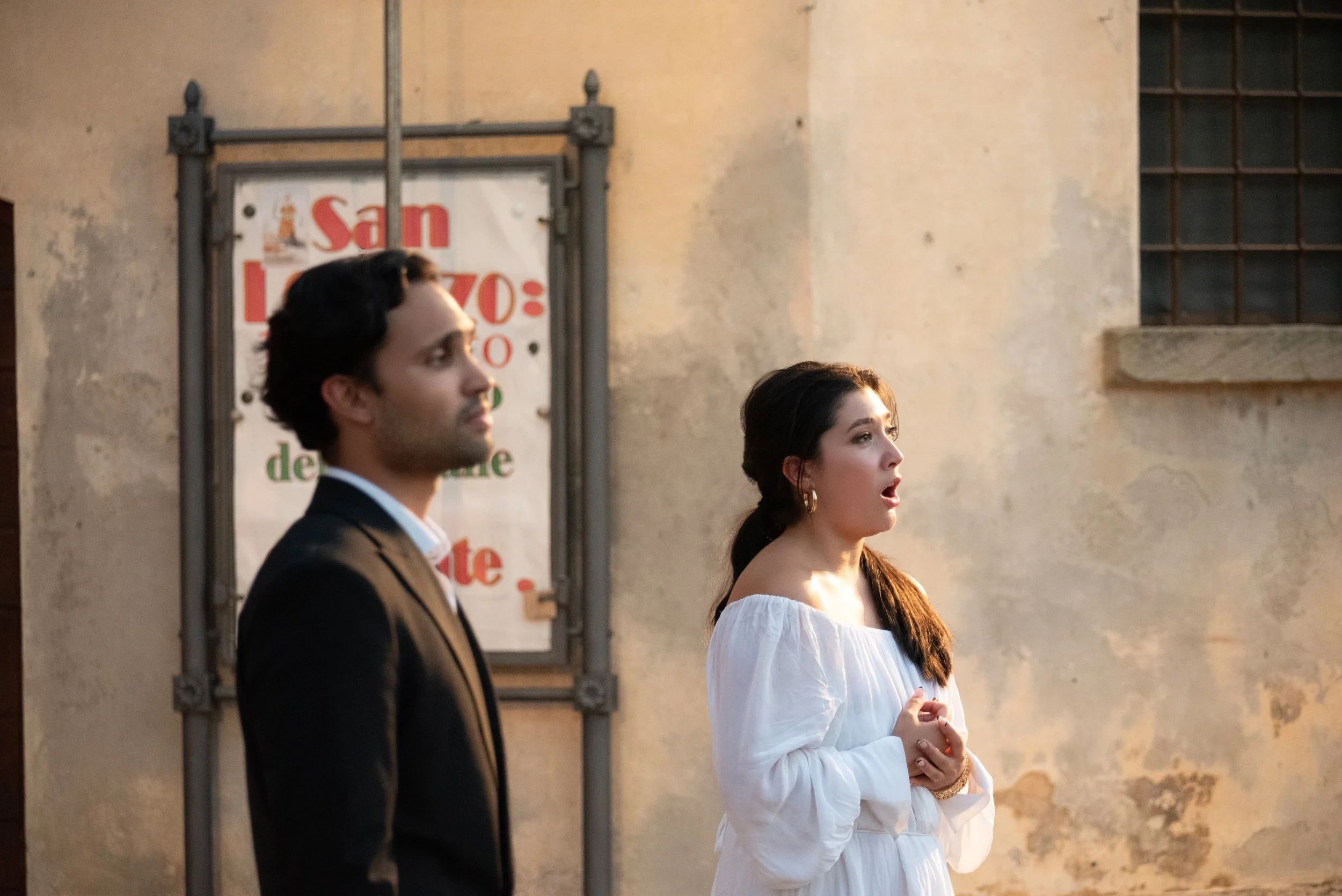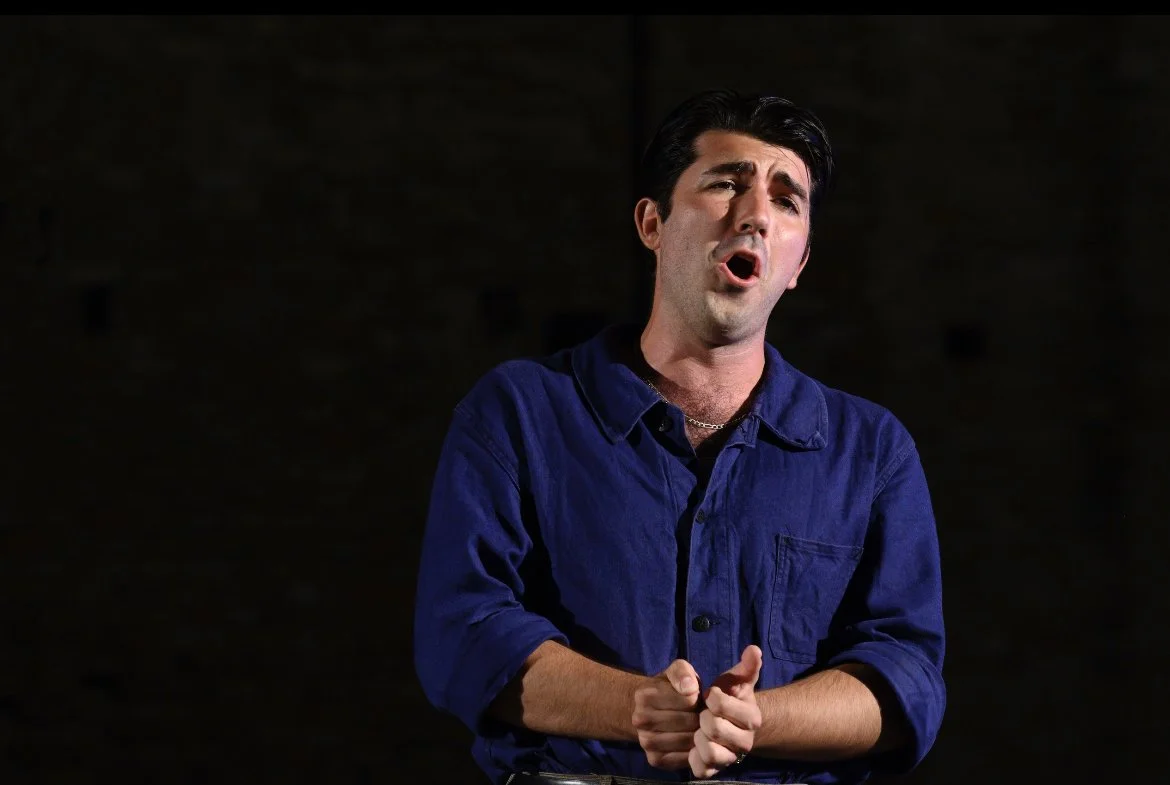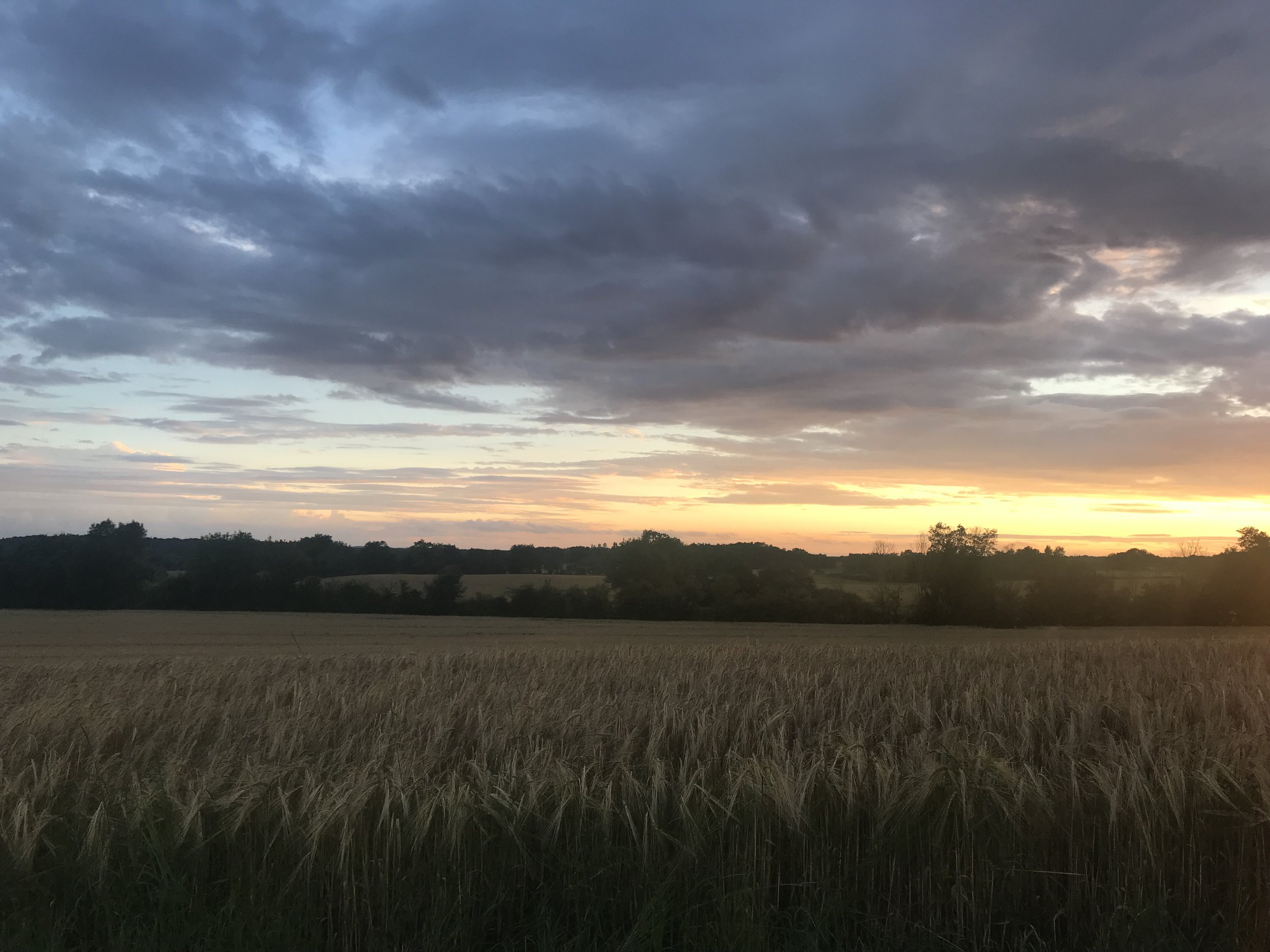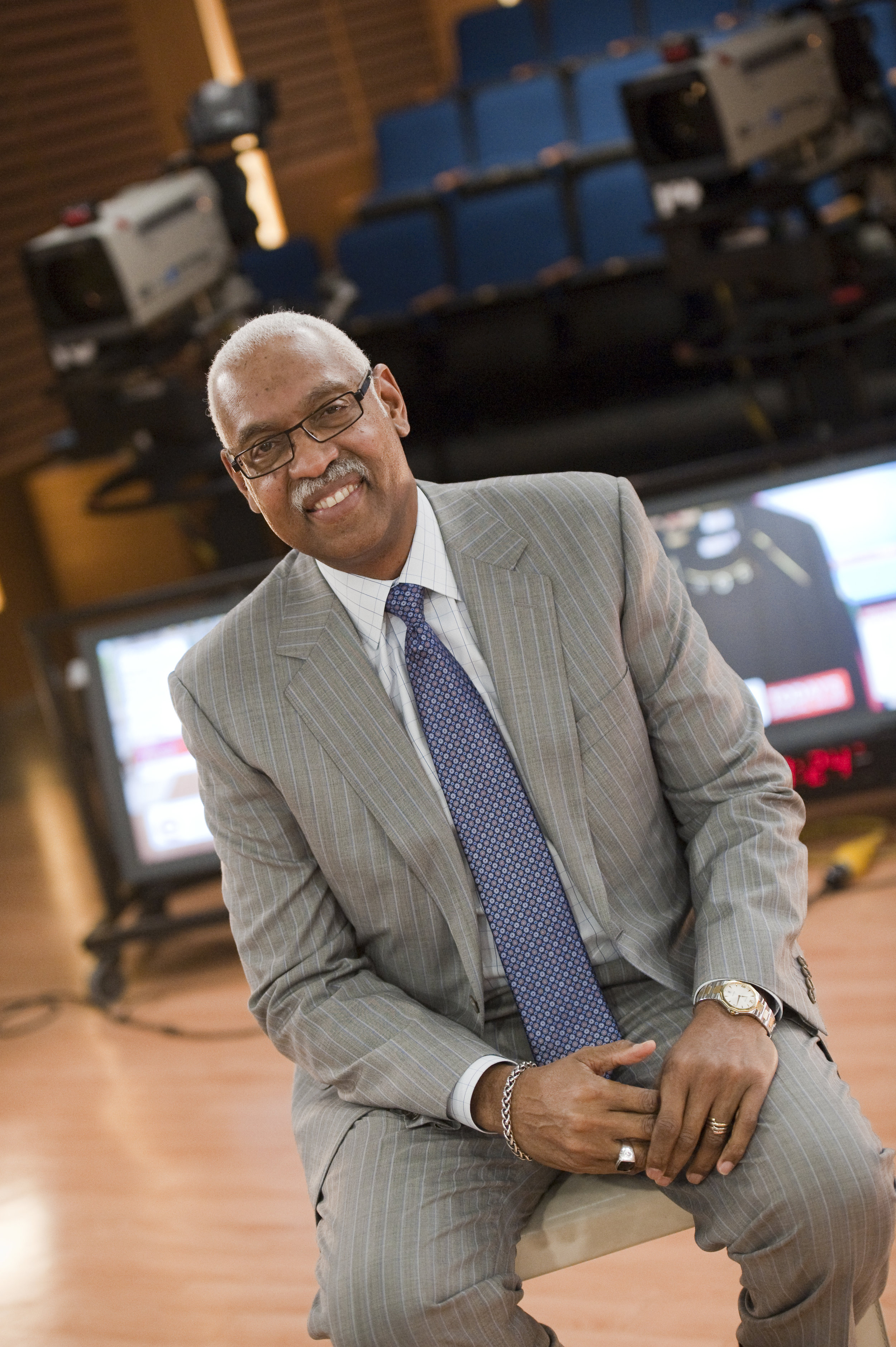Contributing Editor and CLA supporter Marshall Berland writes about the little known Boulanger Sisters of Belle Epoque France--Nadia, arguably the greatest composition teacher of the twentieth century, and her younger sister, the tragic Lili, who died at the age of 24 and yet left an impressive body of work still being discovered and appreciated today. Grab your coffee and head to Paris for the afternoon!
Chinese Students and CLA
CHINESE STUDENTS AND CLASSIC LYRIC ARTS
Each summer Classic Lyric Arts Italy brings twenty aspiring singers from all over the world to the beautiful town of Novafeltria in the Emilia-Romagna region. They perfect their skills in the exacting discipline of singing Italian Opera and Art Song, studying with master teachers and interacting with the community. In the video above, four Chinese students of the program discuss their experiences with this program and the unique challenges they have encountered.
In Memory of Michel Sénéchal
“In French song, the singer becomes a painter, describing a landscape, suggesting an emotion…One must use the entire palette of colors of the voice…” ”
From the program’s beginnings in 2012 to the year 2014, we had the great honor of having the distinguished singer and teacher Michel Sénéchal to offer daily coachings to the participants, sharing his vast experience and passion for the art of singing in French. An undisputed master of the French repertoire, he was intimately connected to the great composers such as Charpentier, Hahn, Honegger, Messian, and Poulenc, as well as the renowned master teacher Nadia Boulanger. A student at the Paris Conservatory along side Régine Crespin and Gabriel Bacquier, he studied with the great French baritone Camille Maurane, as well as Gabriel Pollet, the last disciple of Fauré, Duparc, Satie and Debussy.
Michel Sénéchal led a brilliant career, starring on the world’s most prestigious stages including the Paris, Vienna, Salzburg, Berlin, Milan, London, Bruxelles, Moscow, Madrid, Barcelona and San Francisco opera houses as well as the Metropolitan in New York. He can be heard on over a hundred recordings. Renowned for his impeccable style and dramatic presence, he was one of Karajan’s preferred singers. The maestro invited him to perform in Mozart’s greatest operas in Vienna, where he also took on many other prominent roles alongside the most celebrated singers of our times, under the most renowned conductors.
Michel Sénéchal was born in Paris. During his childhood, he sang as an alto in the choir at his grade school and at his church; then after a period of classical study, he entered into the Conservatoire National Supérieur de Musique de Paris where he studied voice with Gabriel Paulet. He won the 1er Prix de Chant in 1950 and was immediately engaged with the Théâtre Royal de la Monnaie in Brussels where he made his début in Mârouf. Two years later, he was the [star/high? brillant laureat] in the Concours International of Geneva. In 1958, he made his débuts at the Paris Opera and at l’Opéra-Comique where he excelled at his chosen repertoire: Mireille, Mignon, Lakmé, Il Barbiere di Siviglia, Les Indes Galantes, Cosi Fan Tutte, Le Compte Ory, Platée, L’Incorrazione di Poppea...
While his light tenor voice was perfectly suited to leading roles of Mozart and Rossini which he sang in his early career, he dedicated the second half of his career to the repertoire for character tenor. Thanks to his unique artistry and exceptional humor, he became the premiere performer of these roles. An unforgettable interpreter of the [heros/heroine/title characters] of Jean-Philippe Rameau, he was saluted by the public and the press as the most beautiful interpreter of Platée. In international news, he was remarked for his musicality and his [investment scenic/stage presence/character] in the title roles of Compte Ory of Rossini and of Platée, but equally those of Georges Brown from La Dame Blanche, of L’Innocent in Boris Godounov, and of Gonzalve in L’Heure Espagnole.
He sang alongside Régine Crespin, Andréa Guiot, Robert Massard, Jane Rhodes, Gabriel Bacquier, Roger Soyer, Denise Dupleix, Michel Roux, and Placido Domingo, Renée Felming, Mirella Freni, Elisabeth Schwarzkopf, Luciano Pavarotti and many other illustrious artists.
He performed in the world’s premier opera theaters: At Vienna Opera, he was one of the few French tenors to have sung Tamino in Die Zauberflöte, but also Le Compte Ory, L’Heure Espagnole, L’Enfant et les Sortilèges, Il Matrimonio Segreto. At Madrid Opera, he sang Le Nozze di Figaro. At the Metropolitan Opera, from 1982 onward he performed regularly in Les Contes d’Hoffman, Le Nozze di Figaro, Falstaff, La Forza del Destino, Eugène Onéguine, Andrea Chenier, La Fille du Regiment, Manon. Since 1989 he sang at the San Francisco Opera in Capriccio, Le Nozze di Figaro, La Fille du Regiment, Andrea Chenier, Der Rosenkavalier, Russalka, Madama Butterfly, Manon, and Les Contes d’Hoffman. He also participated in productions in the most prominent international festivals, such as Aix en Provence (Platée), Glyndebourne and Salzbourg where he made a revered interpretation of Herbert Von Karajan.
From his extensive discography, we note Dialogues of the Carmelites, Chérubin of Massenet, L’Heure Espagnole and L’Enfant et les Sortilèges, Platée, L’Enfance du Christ, Le Compte Ory, Mireille of Gounod, Roméo et Juliette of Berlioz, Anthologies of the Mélodies of Francis Poulenc with Dalton Baldwin; and most notably, the recording of La Dame Blanche.
Established as an absolute master of French singing, he was professor and director at the Opéra de Paris School for fifteen years, being instrumental in the evolution of many of today and tomorrow’s stars including Roberto Alagna, Nathalie Dessay, Uria Monson, Ludovic Tésier and Renée Fleming.
He offered classes at Columbia University and New York’s Mannes College. He also gave master classes to young singers at the Metropolitan Opera and San Francisco Opera and taught at the International Vocal Arts Institute in Montreal.
After making his debut in 1950, he continued to be active for over 60 years as a performer and master teacher.
Sitting down with John Hunter, Chairman of the Board
Maria Miller, Development Coordinator for Classic Lyric Arts, Inc. sits down with John Hunter, Chairman of the Board, to discuss his CLA experience.
MM: How did you become involved with CLA?
JH: A few years back, Glenn Morton, the artistic director for CLA, asked me to attend a planning session in the home of one of our board members. I agreed based on the wonderful experience my daughter had at CLA. I thought it would be a good thing to lend my support and experience in strategic planning for the private sector.
MM: What has been most gratifying about being involved with this program?
JH: Indeed the most gratifying thing has been to watch CLA grow as an organization and influence the artists who attend our programs. When I see artists developing careers in opera who are able to discuss how their time in France or Italy changed the trajectory of their work, it’s really exciting. I think the focus on language and culture is an important differentiator for CLA. The native instructors who specialize in the understanding of certain composers and what their intent was for each word that is expressed is truly unique. More importantly, for the artist who has not been brought up in the countries where opera began, the opportunity to understand the culture and language at a deeper level is unique and invaluable.
MM: Any favorite moments?
JH: I’m always excited to hear the artists perform during the November CLA gala. Last year's gala, in particular, was very exciting because of the diversity of the group and the way in which the voices combined to present a deeply moving performance.
MM: Ten years have flown by. What’s ahead?
JH: I think we’ll provide CLA with a platform to increase its visibility in the USA with opera lovers and young artists. Increasing performance opportunities in the states and exposing others to CLA through master classes given by our wonderful instructors will be a couple of ways we’ll achieve this. We will put a strong emphasis on increasing our funding for deserving artists to attend the programs in Italy and France.
Spring 2016 Newsletter: A Letter From Glenn Morton
Working with singers is an endless journey of discovery. Is it possible that a particular quality of voice that catches your ear and dazzles you with its facets of color is yet to be heard, or an artistry that sparks your imagination and touches you in un- expected and inexplicable ways exists in a budding voice student? I often say that coaching singers is the best job in the world because it is a treasure hunt. All that's required is to find the key that unlocks a free, unobstructed, pure human sound that is by its very nature, a sound we've never heard before. The job of someone who works with singers is to wait for that quality to appear, to coax it out, shine a light on it, celebrate it, and to watch it unfold.
When I was a student, working with opera singers for the first time, I saw these little miracles happen most often through diction--the detailed study of vowels, consonants, the shaping of words, the gesture of a phrase, the telling of a story. When a singer happens upon what can only be called the "sweet spot", it is undeniable, breathtaking, life-changing. This treasure hunt became my vocation, my daily work, and the spark that created Classic Lyric Arts as I eventually found colleagues equally fascinated by the relationship between words and music, friends and supporters who love this art form and are committed to its future, and young singers who know that they have something inside of them that can only be expressed through their voice, and are willing to dedicate their lives to finding a way to bring this out through the masterpieces of opera and song.
Three quotes beautifully encompass our mission at CLA. The first two are from the mentor/teachers whose work is at the heart of these programs. The third is from Shakespeare, who knew at thing or two about words (and music!).
"The French sing more through their words than through their music. The unique strength of French song is in the music of the words, the painting of words. The singer becomes a painter, describing a landscape, suggesting an emotion...One must use the entire palette of colors of the voice."
Michel Sénéchal, principal coach, CLA France
"The great singers who become true legends are, not by coincidence, those who have an impeccable diction, one that is intrinsically connected to their vocal technique."
Ubaldo Fabbri, principal coach, CLA Italy
"Words without thoughts never to Heaven go."
Shakespeare, Hamlet
Excerpts from January Newsletter 2017: A Letter from Glenn Morton
Mentoring an emerging generation of exceptional singers is the mission of Classic Lyric Arts. Illuminating a path to understanding the music of language is our method. 2016 marked our 8th year of CLA Italy and our 5th of CLA France. Each new season brings a group of extraordinary young singers to Europe to study the techniques and traditions of French and Italian opera and song with master teachers focused on the interconnection of language and great singing. We believe that a singer, authentically and honestly telling a story through music, has the power to move us, inspire us and illuminate our common humanity. Our conviction is that the keys to beautiful, engaging and powerful singing lie hidden in language itself. Within words exist the elements of song--the colors of vowels, the expression of consonants, the gesture of a phrase, the telling of a story--elements that are part of a journey without end.
Excerpts from December Newsletter 2017: A Letter from Glenn Morton
Celebrating CLA '17/Preparing CLA '18
As we wrap up an extraordinary year at Classic Lyric Arts, having now accomplished 15 summer training programs in Italy and France, and approaching the milestone of our 10th year at CLA Italy, the question at the heart of our work is: what does it mean for each of us to be part of the journey of a young artist? How important is it for us to help an aspiring musician realize their potential to find a unique way to impact their world? I myself can't imagine anything more crucial.
It's fascinating to observe the diverse career paths of our participants; for some it's about top graduate schools, coveted young artist programs, competition prizes, professional contracts; for others it's about creating new opera companies and lecture series, obtaining professorships, a Broadway debut, a Fulbright scholarship, and even teaching music to children in the Bronx. Success in music has a thousand pathways, but dedication to quality is the common denominator.
I'm starting to see that Classic Lyric Arts, as an organization, is taking on an energy of its own, fueled by the very good people who are attracted to our mission and are consequently helping us to impact the careers of our young artists more powerfully. I feel that my personal title should perhaps be curator--like someone in a gallery who chooses fine paintings and presents them at their splendid best. The curator is neither the painter nor the painting, but simply the person who understands and loves what's beautiful about them. That's how I feel about this music, these languages, these cultures, and most especially about these young artists that give us hope for the future. I'm glad to have you with us on this journey.
CLA Presents: Annual Fall Fundraising Gala 2017
It is a big year for CLA. First off, we are celebrating our 10th year of programs for CLA Italy, which began in Novafeltria in 2009. Read our artistic director's memoir of that year here. Our alumni of La lingua della lirica and L'art du chant français came together in November to sing ensembles and arias that they performed during their time in France and Italy. This year, we grabbed a live stream from the event. Check it out here:
LIVE Feed of the Annual Fall Fundraising Gala 2017
If you are moved by these performances, consider donating to CLA to provide program grants for all of our participants.
Until next year,
CLA Team

















